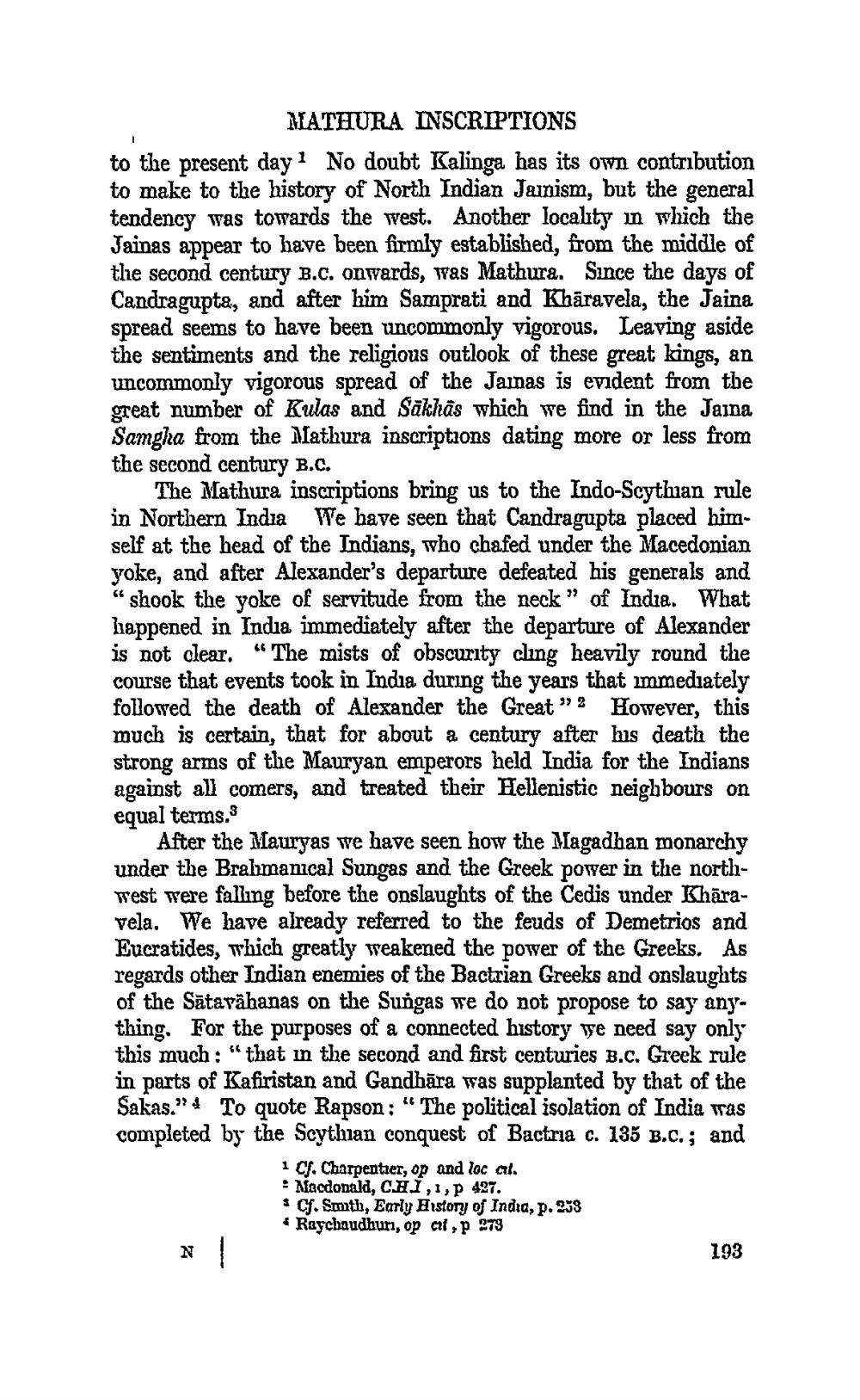________________ MATHURA INSCRIPTIONS to the present day! No doubt Kalinga has its own contribution to make to the history of North Indian Jamism, but the general tendency was towards the west. Another locality in which the Jainas appear to have been firmly established, from the middle of the second century B.C. onwards, was Mathura. Since the days of Candragupta, and after him Samprati and Kharavela, the Jaina spread seems to have been uncommonly vigorous. Leaving aside the sentiments and the religious outlook of these great kings, an uncommonly vigorous spread of the Jainas is evident from the great number of Kulas and Sakchas which we find in the Jaina Samgha from the lathura inscriptions dating more or less from the second century B.C. in Northern India We have seen that Candragupta placed himself at the head of the Indians, who chafed under the Macedonian yoke, and after Alexander's departure defeated his generals and "shook the yoke of servitude from the neck" of India. What happened in India immediately after the departure of Alexander is not clear. "The mists of obscurity cling heavily round the course that events took in India during the years that immediately followed the death of Alexander the Great " 2 However, this much is certain, that for about a century after his death the strong arms of the Mauryan emperors held India for the Indians against all comers, and treated their Hellenistic neighbours on equal terms. After the Mauryas we have seen how the Magadhan monarchy under the Bralimanical Sungas and the Greek power in the northWest were falling before the onslaughts of the Cedis under Kharavela. We have already referred to the feuds of Demetrios and Eucratides, which greatly weakened the power of the Greeks. As regards other Indian enemies of the Bactrian Greeks and onslaughts of the Satavahanas on the Sudgas we do not propose to say anything. For the purposes of a connected history we need say only this much : "that in the second and first centuries B.C. Greek rule in parts of Kafiristan and Gandhara was supplanted by that of the Sakas." ! To quote Rapson: "The political isolation of India was completed by the Scythian conquest of Bactria c. 135 B.C.; and 1 Cf. Charpentier, op and local Macdonald, C.H.),1, 427. * Cf. Smth, Early History of India, p. 233 Raychaudhuri, op cit, p 278 193




